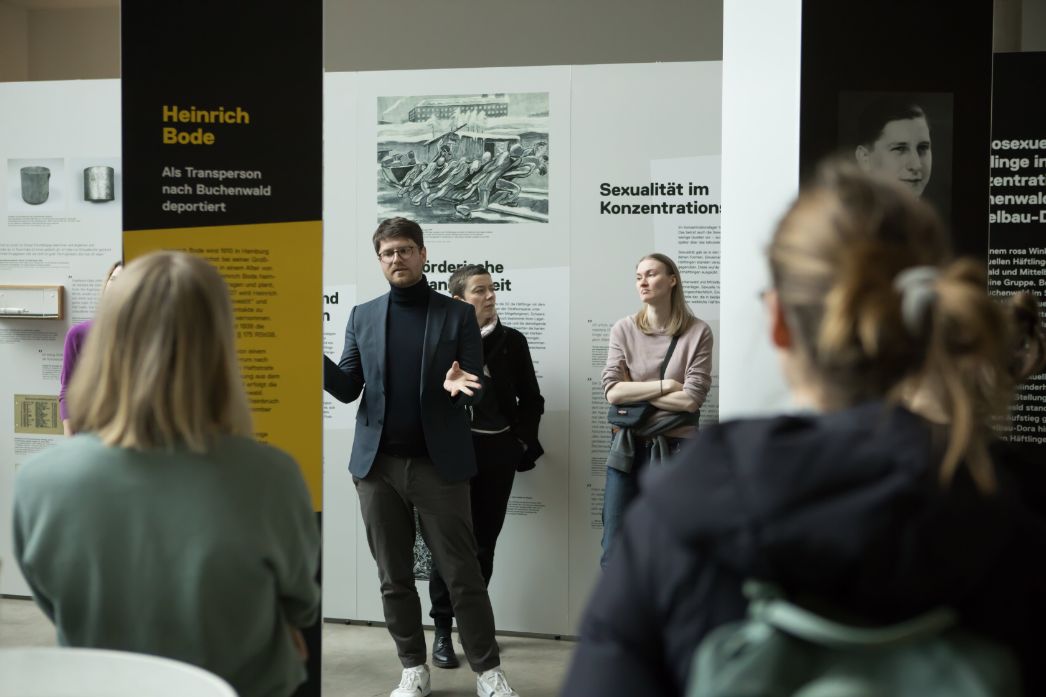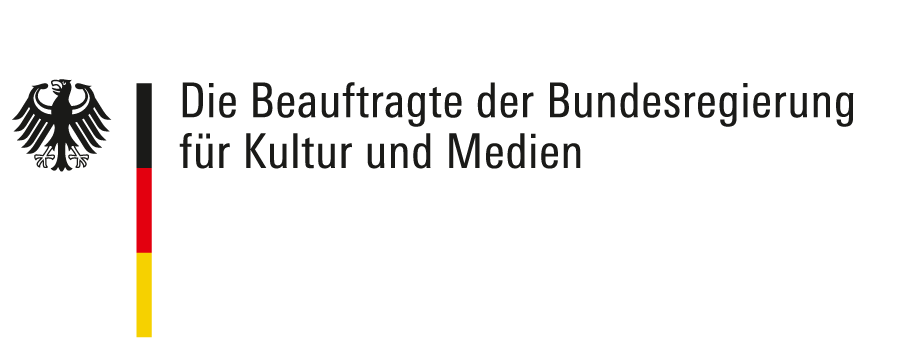
©Peter Hansen, Gedenkstätte Buchenwald
Prisoners persecuted as homosexuals in the concentration camps Buchenwald and Mittelbau-Dora
Presentation of the exhibition in the University of Jena
Opening: 25 May, 6 pm
Around 700 men were deported as homosexuals to the Buchenwald and Mittelbau-Dora concentration camps in Thuringia under National Socialism. About half of them did not survive.
Unlike other persecuted groups, those persecuted as homosexuals were denied recognition as Nazi victims for decades after 1945. This was due to continuities of persecution that began long before 1933 and continued after 1945: Section 175, introduced in the German Empire in 1871 and tightened by the Nazis in 1935, criminalised male homosexuality. Although the text of the law explicitly referred to homosexual men, lesbians, transpersons and sex workers were also victims of homophobic persecution by the Nazi state. Discrimination and persecution did not end with the defeat of National Socialism. In the old Federal Republic, the criminal law paragraph was only weakened in 1968 and finally abolished in 1994.
The conditions under which queer people suffered in the concentration camp and the experiences of discrimination and criminalisation they had even after liberation are told in the exhibition "Rosa Winkel. Prisoners persecuted as homosexuals in the Buchenwald and Mittelbau-Dora concentration camps" for the first time. The exhibition was developed in 2022 under the direction of Dr Daniel Schuch and Prof. Dr Jens-Christian Wagner by students of the FSU Jena in cooperation with the Buchenwald and Mittelbau-Dora Memorials Foundation. The design was carried out by the Weimar office werkraum_media.
The presentation focuses on the living and working conditions of homosexually persecuted prisoners in the Buchenwald and Mittelbau-Dora concentration camps. Based on numerous photos, some presented to the public for the first time, written documents and memoirs of former prisoners from German and international archives, the exhibition shows that the prisoners in Buchenwald and Mittelbau-Dora marked with a pink triangle were at times on the lowest rung of the socio-racist prisoner hierarchy and were under high pressure to be exterminated. Most were assigned to the punishment company and had to do exhausting forced labour in the quarry. In addition, the SS deported them more frequently than other prisoner groups to the Dora subcamp, which was notorious as a death camp. Some prisoners also suffered from pseudo-medical experiments performed on them by doctors to "cure" their homosexuality.
The exhibition deliberately does not limit itself to the topic of the persecution of homosexuals under National Socialism. The core of the exhibition is framed by two sections that deal with the treatment of homosexuality in the German Empire and the Weimar Republic and look at the legal and social lines of continuity after 1945. Not only the persecution under criminal law in both German states until the 1980s (GDR) and 1990s (Federal Republic of Germany) should be mentioned here, but also the state's refusal to recognise and compensate persecuted homosexuals as victims of National Socialism until the 2000s. Newly researched documents from the Ministry for State Security presented in the exhibition make it clear that even in the GDR, recognition of homosexual concentration camp victims was at least hindered. The fact that society's view of homosexuality and the homosexual victims of National Socialism finally changed is primarily due to the self-organisation of gays and lesbians who, since the 1970s, have been self-confidently standing up for their rights and who adopted the pink triangle as a symbol.
Nevertheless, the exhibition ends on a less than optimistic note with the epilogue. As victims of National Socialism, those persecuted as homosexuals are meanwhile honoured almost everywhere. But this does not mean that homophobia has been overcome. On the contrary, it is experiencing a new upswing in countries such as Hungary, Poland, Russia or Iran, and in Germany, too, gays, lesbians and trans people have to fear discrimination, exclusion or even open violence by their fellow citizens.
An exhibition by students of the Friedrich Schiller University Jena in cooperation with the Buchenwald and Mittelbau-Dora Memorials Foundation.

